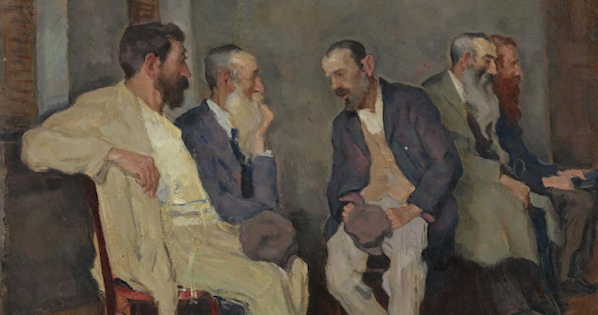
If we were vigilant enough, exacting enough, if we were taught the right mnemonics, if we were offered the right prompts, if we lived uncommon lives and understood ourselves entirely, could we remember everything?
In the Jorge Luis Borges story “Funes, His Memory,” Ireneo Funes, upon suffering a nasty fall, begins to notice and memorize all that he experiences. Funes’s unlimited cognitive resources—he “knew the forms of the clouds in the southern sky on the morning of April 30, 1882, and he could compare them in his memory with the veins in the marbled binding of a book he had seen only once”—allow him to encode, with precision and confidence, even very complicated scenes, such as flickering flames, and all of the visible stars in the sky.
With finite attention spans, fallible memory, and uninspired stargazing, our lives are a far cry from Funes’s. Most of us are likelier to note the failures of recollection than its successes. Still, the sheer depth and specificity of our memory for even mundane matters, like ordinary conversations, can startle.
For one, we remember the particulars of individual voices. And as reported by linguists Abby Walker and Jen Hay, we’re better at processing specific words when they’re uttered in the sort of voice we’re used to: a word more commonly used by older adults, for instance, is more easily understood in an older voice.
A new study led by Dale Barr, a psychologist at the University of Glasgow, suggests that the specificity goes one step deeper: our memories for individual voices combine with our memories for individual words to form memories for individual voices saying individual words. Barr and his colleagues recruited pairs of friends in the same large university to complete a complicated task that required one friend to read aloud the name of a classmate and a second to identify that classmate from a set of photographs. Friend A was faster (as measured by tracking her eye movements) to recognize a classmate when his name was spoken by friend B than when it was said by the experimenter. But crucially, this held true only when the classmate was actually known to both friends. Since the friends had discussed the classmate in the past, the combination of a familiar voice saying the familiar name seemed to prime the person associated with that combination.
So how deep does the rabbit hole really go? If we encode highly specific information about who says what, what else do we encode, and in what resolution? Barr told me that, to his knowledge, there are “no limits on how rich our memories can be.” Limits come only in accessing those memories.
But what I find most interesting is that we’re talking about language, which is built on our ability to categorize sounds into words, and the world into concepts that can be labeled by words. Part of learning a language, then, is learning to overlook the idiosyncrasies that make every instance of a word entirely, if unremarkably, unique.
How we reconcile the remembering with the overlooking, how specific instances are bundled hand in hand with abstract representations, has long been one of the great questions of cognitive psychology. And 70 years ago, Borges beat us to the punch: “I suspect [that Funes] was not very good at thinking. To think is to ignore (or forget) differences, to generalize, to abstract. In the teeming world of Ireneo Funes there was nothing but particulars.”

